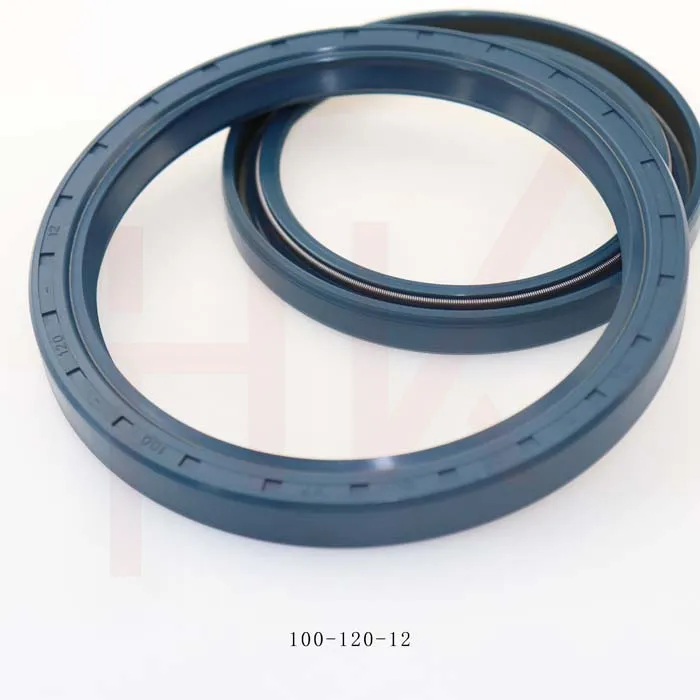Nov . 30, 2024 03:03 Back to list
oil seal suppliers
Understanding Oil Seal Suppliers A Comprehensive Guide
Oil seals, also known as grease seals or rotary shaft seals, are essential components in various mechanical systems. They are designed to prevent the leakage of lubricants, such as oil and grease, while simultaneously keeping contaminants like dirt and dust from entering the machinery. The effective functioning of oil seals is crucial in ensuring the longevity and efficiency of mechanical systems, ranging from automotive applications to industrial machinery. In this article, we will delve into the significance of oil seal suppliers, the different types of oil seals, and factors to consider when selecting a supplier.
Importance of Oil Seal Suppliers
Oil seal suppliers play a pivotal role in the manufacturing and supply chain of mechanical components. They ensure that quality oil seals are available for various applications, thereby helping businesses maintain their equipment's functionality. A reliable oil seal supplier not only provides high-quality products but also offers technical support, assistance in choosing the right seal for specific applications, and timely delivery to meet project timelines.
The right oil seal can significantly affect the performance of mechanical systems. For instance, in automotive applications, a faulty oil seal can lead to engine oil leaks, resulting in reduced lubrication, increased friction, and potential engine failure. Hence, working with a reputable supplier becomes imperative for industries that rely heavily on precision components.
Types of Oil Seals
Oil seals come in various designs and materials, catering to different applications and operating conditions. Here are some of the common types of oil seals
1. Single Lip Seals These seals have a single sealing lip and are commonly used in various applications. They are designed to keep the lubricant inside while preventing contaminants from entering.
2. Double Lip Seals Featuring two sealing lips, these seals provide additional protection against leakage and are ideal for harsher environments.
3. Spring Loaded Seals These seals include a spring that applies constant pressure on the sealing lip, enhancing the seal's effectiveness under changing operational conditions.
4. Metal Casing Seals These seals have a metal casing that provides extra durability and can withstand extreme conditions, making them suitable for heavy machinery.
oil seal suppliers

Each type has its advantages and is tailored to meet specific performance requirements, making it essential for suppliers to offer a diverse range of products.
Factors to Consider When Choosing an Oil Seal Supplier
Selecting the right oil seal supplier involves careful consideration of several factors
1. Quality Assurance Ensure that the supplier adheres to quality control standards and certifications. High-quality seals are crucial for maintaining mechanical integrity.
2. Product Range A supplier offering a wide variety of oil seals can cater to different needs. This includes seals made from various materials and designs suitable for diverse applications.
3. Technical Expertise It is beneficial to work with suppliers who possess in-depth knowledge of their products and can provide guidance on the best options for your specific requirements.
4. Pricing and Availability Compare prices among different suppliers while also weighing the quality of their products. Ensure that the supplier can guarantee timely shipping to avoid production delays.
5. Customer Reviews and Reputation Research customer feedback and the supplier's reputation in the industry. Reliable suppliers often have a history of positive customer interactions and successful partnerships.
6. Support Services Look for suppliers that provide exceptional customer support, including assistance with product selection, installation advice, and after-sales support.
Conclusion
Oil seals are critical components in various mechanical systems, and choosing the right supplier can significantly impact equipment performance and longevity. Oil seal suppliers must provide a range of high-quality products, expert advice, and excellent customer service. By considering factors such as quality assurance, product diversity, and supplier reputation, businesses can forge strong partnerships with oil seal suppliers, ensuring optimal performance in their operations. As industries continue to evolve, the demand for reliable and efficient oil seals remains ever-present, making the role of suppliers increasingly vital.
-
TCN Oil Seal Metal Ring Reinforcement for Heavy Machinery
NewsJul.25,2025
-
Rotary Lip Seal Spring-Loaded Design for High-Speed Applications
NewsJul.25,2025
-
Hydraulic Cylinder Seals Polyurethane Material for High-Impact Jobs
NewsJul.25,2025
-
High Pressure Oil Seal Polyurethane Coating Wear Resistance
NewsJul.25,2025
-
Dust Proof Seal Double Lip Design for Construction Equipment
NewsJul.25,2025
-
Hub Seal Polyurethane Wear Resistance in Agricultural Vehicles
NewsJul.25,2025
-
The Trans-formative Journey of Wheel Hub Oil Seals
NewsJun.06,2025
Products categories
















